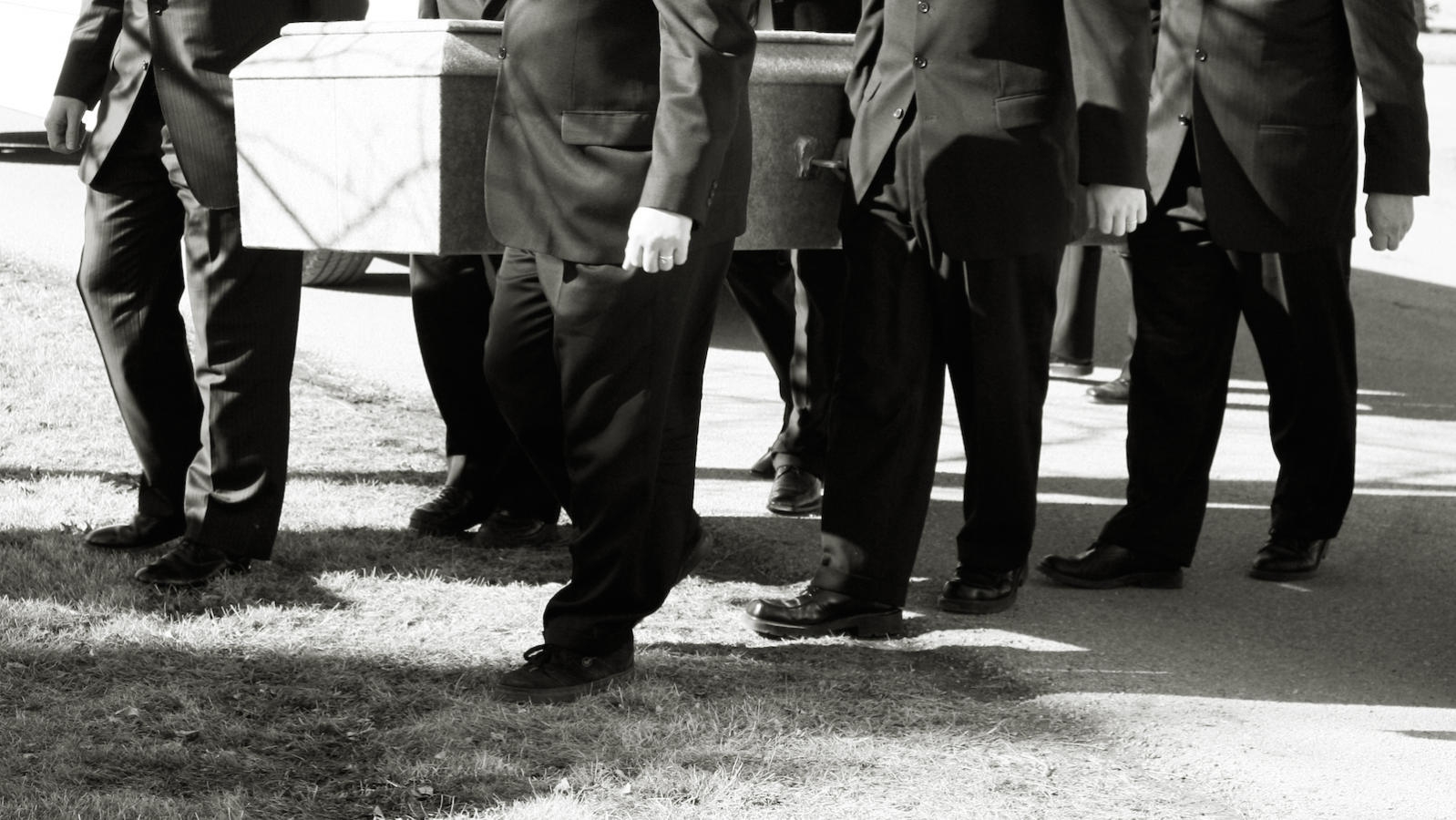El Maleh Rahamim (God full of compassion) is a prayer for the departed that is recited with a haunting chant at funeral services, on visiting the graves of relatives (especially during the month of Elul), and after having been called up to the reading of the Torah on the anniversary of the death of a close relative.
When is it recited?
In some Ashkenazi synagogues, El Maleh Rahamim is also a part of the Yizkor memorial service on Yom Kippur and on the last days of the three pilgrimage festivals (Passover, Shavuot, Sukkot). The prayer originated in the Jewish communities of Western and Eastern Europe, where it was recited for the martyrs of the Crusades and of the Chmielnicki massacres.
If one or both parents of either a bride or groom is dead, it is customary to visit the grave before the wedding and to recite El Maleh Rahamim. At one time this memorial prayer was recited during the wedding service under the huppah. Although a dramatic and effective way to remember the deceased, this practice marred the joy of the wedding.
Consequently, the fashion has changed and the memorial prayer is now usually recited (if at all) before the wedding ceremony in the presence of the immediate family, usually in the rabbi’s study.
With your help, My Jewish Learning can provide endless opportunities for learning, connection and discovery.
Listen to Sara Wolf recite El Maleh Rachamim:
What does it say?
El Maleh Rahamim is a plea that the soul of the departed be granted menuchah nechonah (proper rest), since the mere fact that a soul is in Gan Eden (Paradise) does not guarantee it complete contentment. According to tradition, the level of the soul in Gan Eden depends on its prior achievements on earth. Through our prayers and good deeds, we hope to earn God’s compassion for the departed souls of those who were dear to us.
The statement is made that the worshiper resolves to “contribute to charity in remembrance of his (or her) soul.” El Maleh Rahamim includes the phrase “on the wings of the Divine Presence,” rather than the more common “under the wings of the Divine Presence.”
The latter phrase implies heavenly protection from danger by using the analogy of a bird spreading its protective wings over its young. The analogy is reversed when speaking of spiritual elevation–God’s presence is compared to a soaring eagle that puts its young on top of its wings and carries them aloft.
Reprinted with permission from The JPS Guide to Jewish Traditions, published by the Jewish Publication Society.
Full Text of El Maleh Rahamim in Hebrew, transliteration and English translation
אֵל מָלֵא רַחֲמִים שׁוֹכֵן בַּמְּרוֹמִים, הַמְצֵא מְנוּחָה נְכוֹנָה עַל כַּנְפֵי הַשְּׁכִינָה בְּמַעֲלַת קְדוֹשִׁים וּטְהוֹרִים כְּזֹהַר הָרָקִיעַ מַזְהִירִים אֶת נִשְׁמַת
(name of the deceased)
שֶׁהָלַךְ לְעוֹלָמוֹ בְּגַן עֵדֶן תְּהֵא מְנוּחָתוֹ. אָנָּא בַּעַל הָרַחֲמִים יַסְתִּירֵהוּ בְּסֵתֶר כְּנָפָיו לְעוֹלָמִים, וְיִצְרוֹר בִּצְרוֹר הַחַיִּים אֶת נִשְׁמָתוֹ. יְיָ הוּא נַחֲלָתוֹ, וְיָנוּחַ עַל מִשְׁכָּבוֹ בְּשָׁלוֹם. וְנֹאמַר אָמֵן
El Maleh Rakhamim, shokhein bamoromim, hamtzei menukhah al kanfei hashekhinah b’ma’alot kedoshim u’tehorim k’zohar harakiyah mazhirim et nishmat (name of the deceased) shehalakh l’olamo b’gan eden t’hei menuchato. Ana ba’al harakhamim yastireihu b’seiter k’nafav l’olamim vitzror b’tzror hayim et nishmato. Adonai hu nakhalato, v’yanukhu al mishkavo b’shalom. V’nomar amen.
God who is full of mercy and dwells on high, provide a true rest on the wings of the Divine Presence amongst the holy and pure ones who shine as brightly as the brilliance of the sky to the soul of (name of deceased) who has gone on to their eternity, the Garden of Eden will be their resting place. We beseech the Merciful One to shade them forever with divine wings, and to bind their soul up in the bonds of life. The Lord is their heritage, and they shall rest peacefully on her bed. And let us say, Amen.
Sign up for a Journey Through Grief & Mourning: Whether you have lost a loved one recently or just want to learn the basics of Jewish mourning rituals, this 8-part email series will guide you through everything you need to know and help you feel supported and comforted at a difficult time.
Looking for a way to say Mourner’s Kaddish in a minyan? My Jewish Learning’s daily online minyan gives mourners and others an opportunity to say Kaddish in community and learn from leading rabbis.
Torah
Pronunced: TORE-uh, Origin: Hebrew, the Five Books of Moses.
Yom Kippur
Pronounced: yohm KIPP-er, also yohm kee-PORE, Origin: Hebrew, The Day of Atonement, the holiest day on the Jewish calendar and, with Rosh Hashanah, one of the High Holidays.



